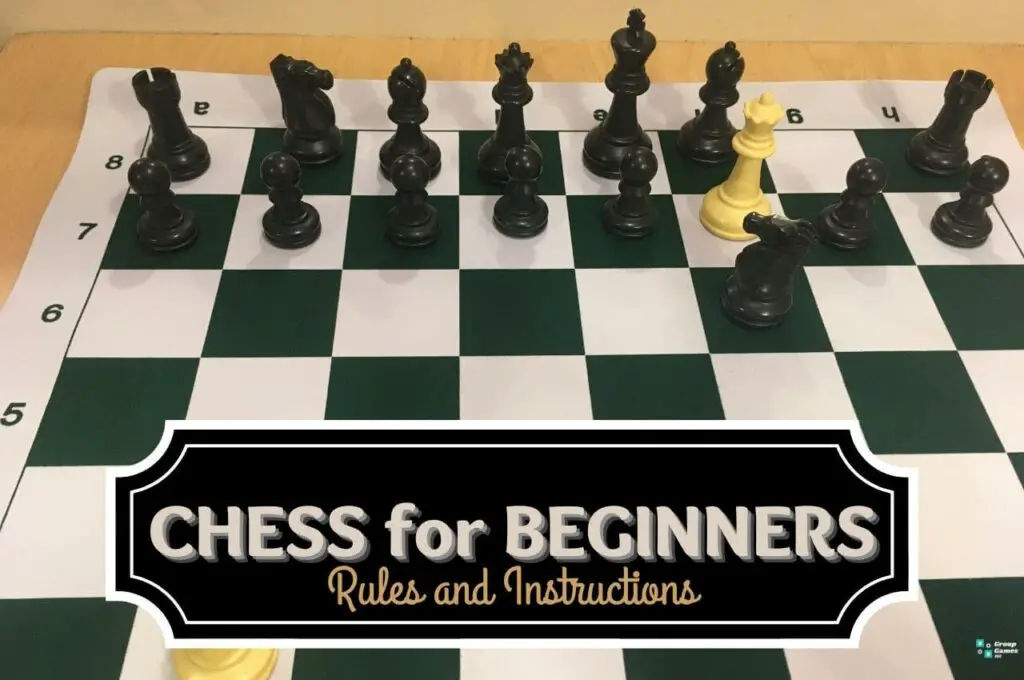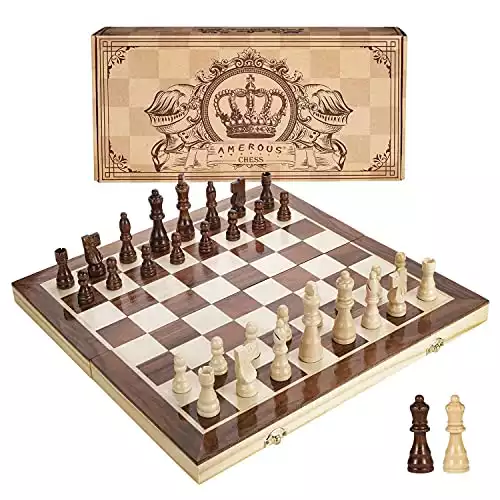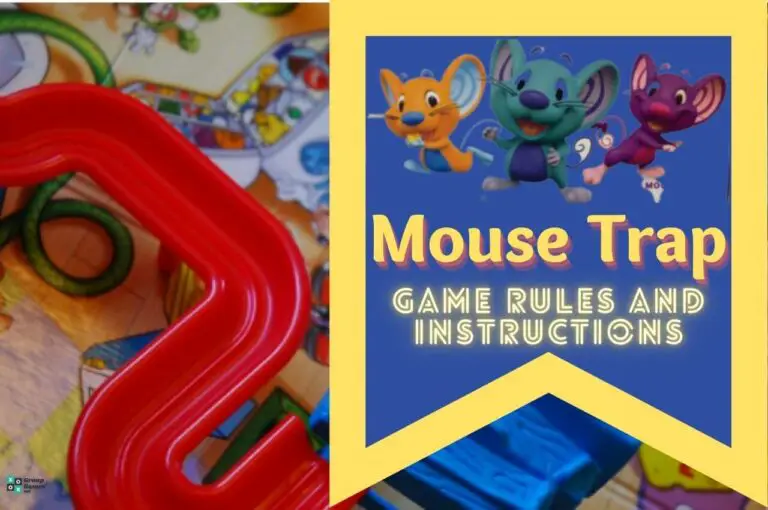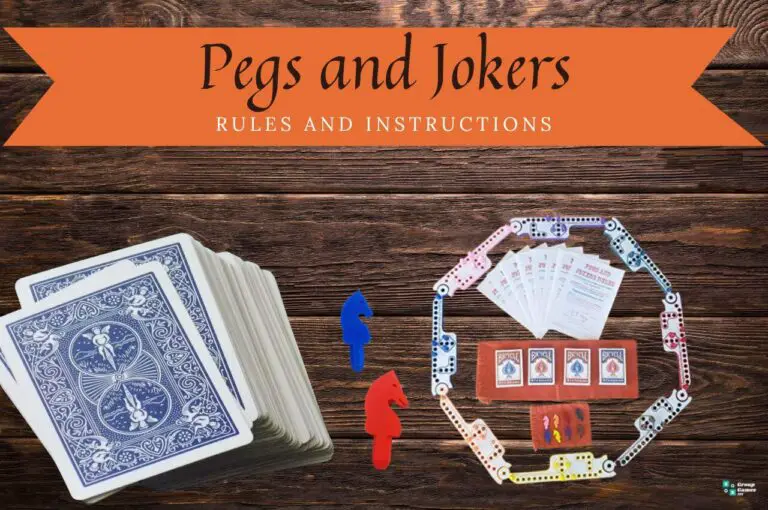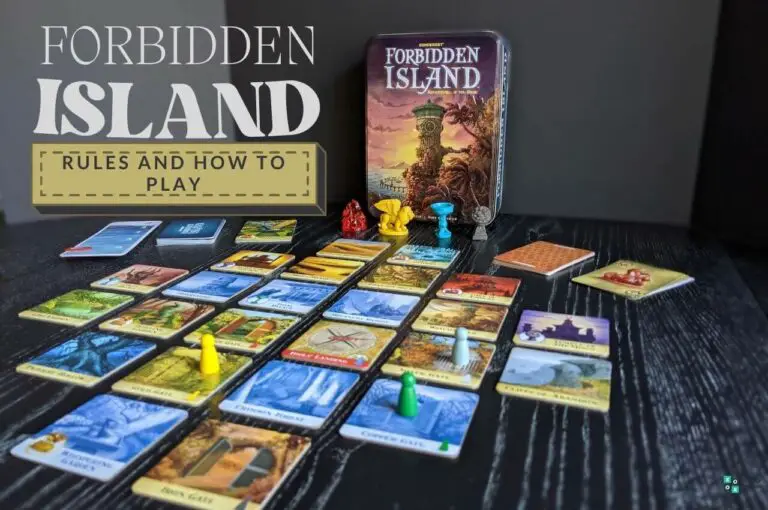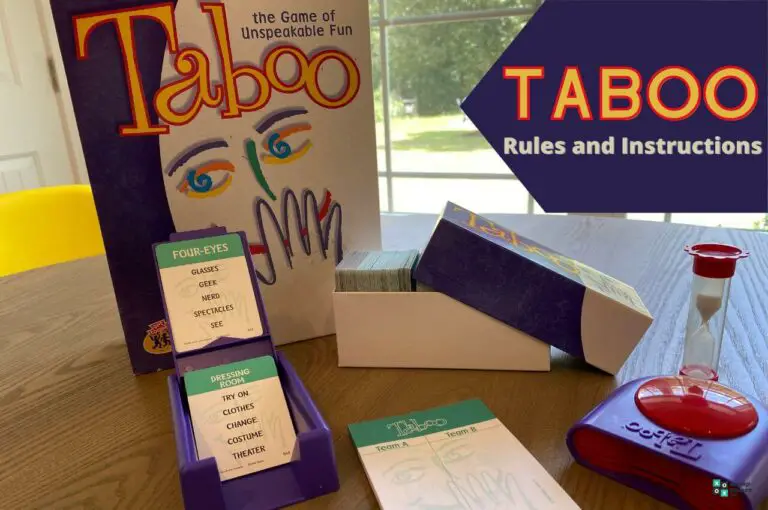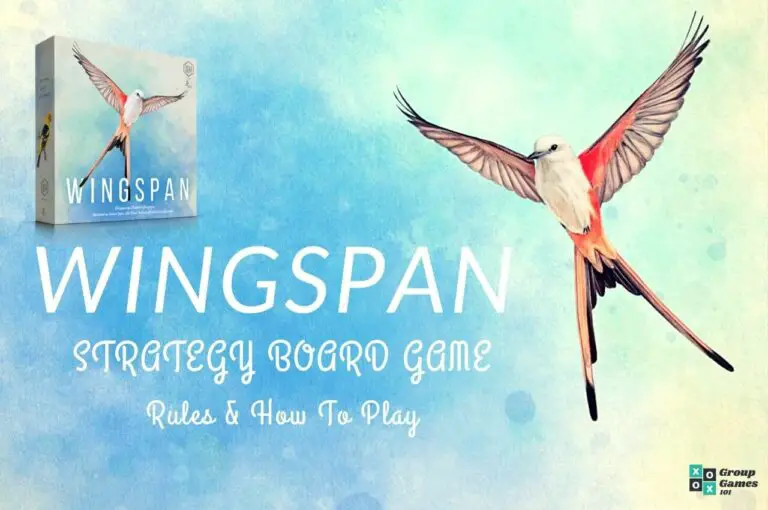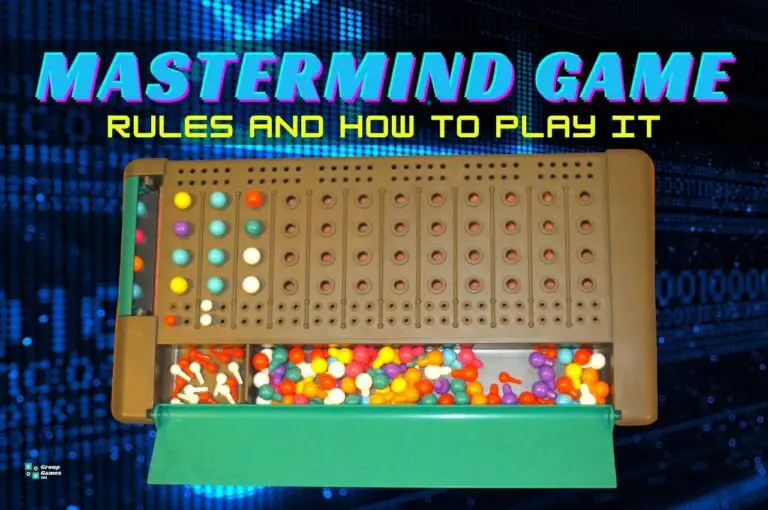One of the oldest known board games, Chess is recognized for its requirement of forethought and deep concentration to win. Thought to improve cognitive functioning, people play Chess for enjoyment and mental development.
Chess is a recreational and competitive board game played by people of all ages, from park benches to after-school clubs worldwide.
This Chess rules guide will cover the following:
- What is Chess?
- A brief history of Chess
- What you’ll need to play Chess
- Chess Rules
- How to play Chess (Video Tutorial)
- FAQs
Read on to learn how to play Chess for beginners.
What is Chess?
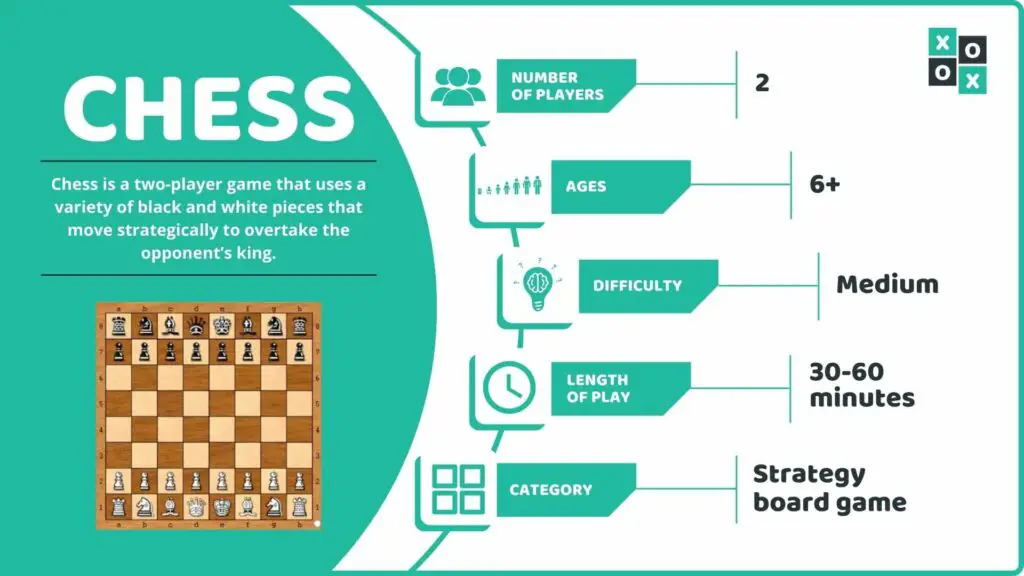
Chess is a two-player game that uses a variety of black and white pieces that move strategically to overtake the opponent’s king. How accurately a player predicts and visualizes upcoming moves or plays will give them an advantage.
Number of Players: 2
Ages: 6+
Difficulty: Medium
Length of Play: 30-60 mins.
Category: Strategy
Similar to: Backgammon, Checkers, War, Onitama
Main Objective: Each player works to trap the opponent’s king to win the game.
Why We Love It: Chess stands out among gamers due to its long-standing history and rich depth. This game takes a little time and patience to acquire, but before you know it, you’ll be competing with the masters.
Related: 14 games like Chess
A Brief History of Chess
There is a great deal of controversy among historians regarding the origin of Chess. However, the game has evolved from older games, such as a war game played in India called Chaturanga by the 7th century.
As the game’s popularity spread across the globe, it took on different characteristics and variations. By 1475, the rules changed, including introducing pawn promotion providing players with more offensive tools needed to obtain checkmate.
Chess sets as we know them today were endorsed by a champion Chess player, Howard Staunton, in 1835 and were later patented in 1849.
Many plays have been named after the champions that established them throughout history.
What You’ll Need to Chess
Everything you need to play comes included in this boxed set.
This wooden boxed set contains:
- Magnetic chessboard
- 16 white pieces
- 16 black pieces
- 2 extra queens
Area of Play
Set up the game board, similar to checkers, consisting of 8 x 8 squares, alternating black, and white.
When you set up the pieces on the board, the white corner square always goes on each player’s right-hand side.
There are 16 pieces per side in opposing colors- black vs. white.
These pieces come in both black and white, each player begins with the same 16 pieces, set up identically on either side of the board:
- 2 rooks
- 2 knights
- 2 bishops
- 1 queen
- 1 king
- 8 pawns
Facing the board, with the white square in the right-hand corner, place a rook in each of the corner squares. Beside the rooks, place the knights, moving inward, then the bishops, followed by the queen and king in the center. The queen must be placed on the matching colored square.
Position all 8 pawns on the row directly in front of the king and queen. This is all you need to begin.
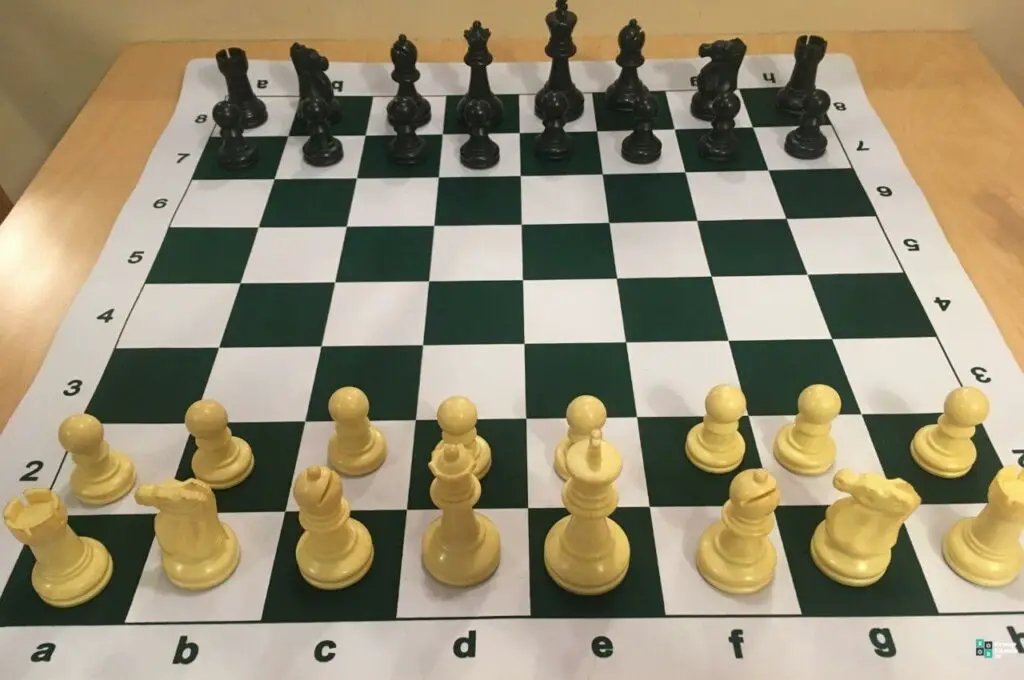
Algebraic Notation
When studying Chess and learning various plays, it is essential to understand that the squares on the chessboard are identified by a letter and number. This identification helps you recognize which pieces move to which square throughout the game.
This grid numbering system is critical when learning specific plays or playing in a tournament setting because each move must be recorded using the letters and numbers of each play.
Chess Rules
Once the pieces are set, determine who will play which color by enclosing a pawn of each white and black- one in each of your hands. Your opponent selects a hand, and whichever pawn is revealed will be their playing color.
The player who selects the white piece will make the game’s first move. Then, each player will take turns moving a piece of their color when it is their turn to move from that point on.
Each piece moves directionally based on the following description for gameplay:
- Rook- moves only horizontally or vertically (unlimited distance unless blocked)
- Knight– moves only in an L-shaped pattern of 3 squares in any direction *This is the only piece that can jump over another piece to land on its third square.
- Bishop– moves diagonally on its original board color, white or black squares on the board, unlimited distance unless blocked by another piece.
- Queen– moves in any direction unlimited squares in a straight line. Diagonally, vertically or horizontally, and is considered the most powerful piece in the game.
- King– moves only one square at a time in any direction and may never move to a square of an attacking piece or check.
- Pawn– Initially, on their first move, each pawn can move one or two squares only in a forward direction. After each pawn has been moved initially, pawns can only move one square forward at a time.
Capture
All pieces can capture an opponent’s piece upon landing on the square occupied by the opponent.
If you wish to capture a piece with either a rook, bishop, queen, or king, you must follow the specific directional movement patterns for that piece to capture the opponent’s piece, thus taking over that square.
If you wish to capture a piece with your knight, it must land on the final square of the move when following the L-shaped movement.
If you wish to capture a piece with your pawn, the pawn may only capture diagonally one square ahead.
Opening Game
The opening game consists of the first few plays of each player, which take place at the start of the game. There are countless variations of opening moves that are played, each with its own name based on the moves played by each player.
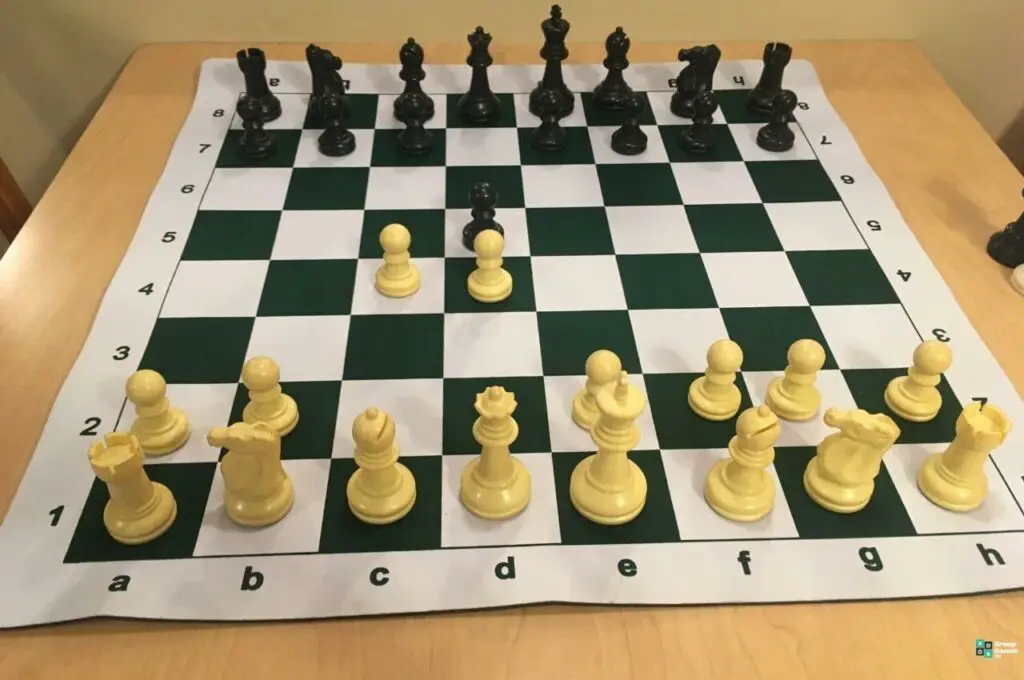
For example, a typical opening called the Ruy Lopez consists of the following series of moves:
- White moves pawn E-4
- Black moves pawn E-5
- White moves knight F-3
- Black moves knight C-6
- White moves bishop B-5
This series of five moves established the Ruy Lopez play.
Castling
Castling is a one-time movement between the rook and the king that typically occurs around the game’s opening to protect the king. This movement puts the king in a safer position.
Castling can only occur under the following conditions:
- The king and the castling rook must remain on their original squares, having not moved since the start of the game.
- No other pieces can be in between the king and the rook on the board.
The rook can slide up to the square beside the king, and the king then jumps over the rook to the other square beside the rook. This is considered one move and can only be done once during a game by each player. You cannot undo a castling position.
You can castle on the king or queen’s side under the same conditions.
A king cannot castle out of check, into check, or through check. If there is an attacking move in the way, castling cannot occur.
Mid-Game
Once the initial opening is played, the next series of moves is considered the mid-game. Unlike the rehearsed opening plays, the mid-game is not played using pre-known series of moves.
Each player now looks for strategies, tactics, and traps or positional advantages that will allow them to capture their opponent’s pieces and weaken the defenses of the opponent’s king.
Players continue to look for advantages and capture each other’s pieces as the game progresses.
End Game
When a game reaches a point where there are approximately 6-10 pieces left on the board by each player, you have now entered what is considered the end game.
At this point, both players try to win the game by trapping the king.
When a king is under attack, the player attacking must say Check to alert their opponent of potential capture. At this time, the king must move out of danger if possible.
You can try to capture the attacking piece to remove the threat, or you can block the attacking piece from threatening your king by moving another piece in the way. This is called Interposing and will protect the king.
If the king or any other member of his force cannot capture the attacking piece, move to a safe square, or block the attacking piece, he is then Check Mated, and the game is over.
Stale Mate
- A Stale Mate occurs when there are not sufficient pieces left on the board to checkmate a king, which is considered a draw.
- Another way to stalemate is with the 50-Move Rule. If a lone-king survives 50 moves without being checkmated, then the game is considered a draw or stalemate. This can only occur if the king is the only piece left remaining for that player.
- The third way to stalemate is by the 3-Move Repetition, which occurs when a lone king and the opponent make three of the exact same moves and create the same positions on the board consecutively.
Pawn Promotion
You can convert your pawns into additional pieces; usually, a queen is selected to gain advantages by successfully moving them across the board to the opponent’s side.
Once a pawn reaches the opponent’s side of the board, without capture, he then turns that pawn into any piece he wishes by replacing it with a piece of choice.
How to Keep Score in Chess
The winner of a game wins 1 point. In a stalemate or a draw, each player receives a half-point. Players can keep track of the number of games won, lost, or drawn when playing Chess casually. There are no specific scoring rules for friendly games of Chess.
In tournament play, the scoring is the same as above. However, players are also required to record each move made during a game using algebraic notation. This is done to double-check any questions regarding accuracy within the game.
How to Play Chess – Video Tutorials
Frequently Asked Questions
Is it healthy to play Chess?
Studies have concluded that playing Chess can increase human cognitive functioning, mainly by reducing the potential for developing dementia or related mental illnesses.
In one study, participants play Chess as a type of cognitive survey allowing researchers to look at changes over time.
In general, board games like Chess allow you to interact with others, problem-solve, and have fun, thus releasing endorphins, making you happier, and improving mental health.
What is the fastest checkmate?
Considered one of the fastest ways to achieve checkmate in the game of Chess, Fool’s Mate is a simple sequence of moves that allows the king to become in direct contact.
Either white or black can utilize the Fool’s Mate playing pattern; however, it requires your opponent to make at least 2 careless moves for it to work successfully.
Other Games Similar to Chess (Our Guides)
After playing Chess, try out some of these other great games with your family and friends:

